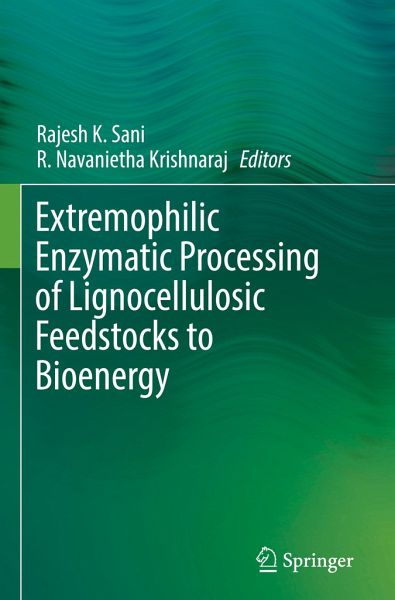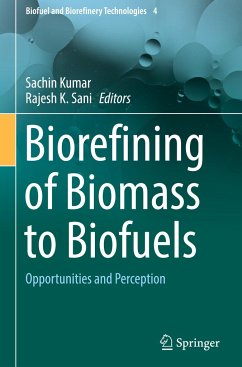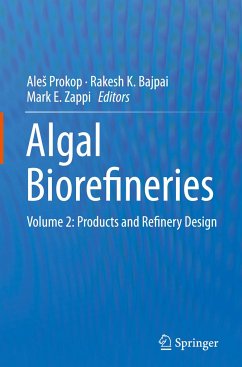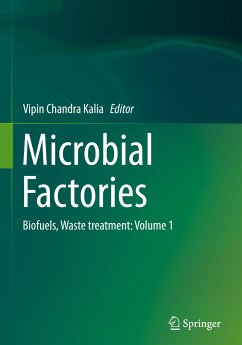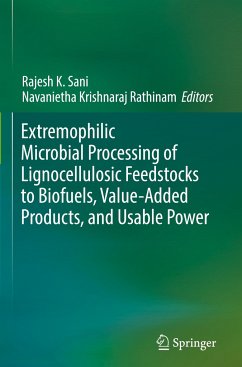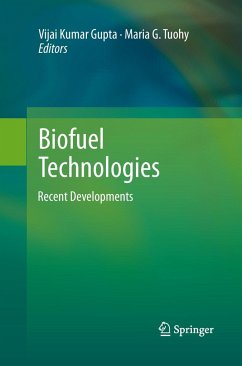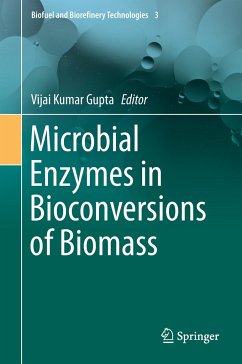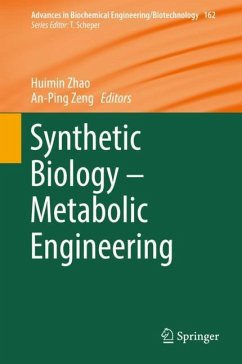Rajesh K. Sani is an Associate Professor in the Department of Chemical and Biological Engineering and Chemistry and Applied Biological Sciences at the South Dakota School of Mines and Technology, South Dakota. He joined the South Dakota School of Mines and Technology as an Assistant Professor in 2006. Prior to this, he worked as a Post-doctoral Researcher and Research Assistant Professor at the Washington State University, Pullman, WA, and focused his research on Waste Bioprocessing. He also served as an Associate Director of NSF Center for Multiphase Environmental Research at the Washington State University. He received his BS in Mathematics from the Meerut University in India, his MS in Enzyme Biotechnology from Devi Ahilya University in India, and his PhD in Environmental Biotechnology from the Institute of Microbial Technology in India. Due to his interdisciplinary background, Sani has been integrating engineering with biological sciences in his teaching as well research endeavors. For over twelve years, Sani has engaged in a constant endeavor to improve his teaching skills to become an effective instructor and communicator. In Washington State University's School of Chemical and Bioengineering and Center for Multiphase Environmental Research, he taught a variety of engineering courses including Integrated Environmental Engineering for Chemical Engineers, Bioprocess Engineering, and Current Topics in Multiphase Environmental Research - a team taught interdisciplinary course to undergraduate and graduate students. Over the last nine years at the South Dakota School of Mines and Technology, he has been teaching various science and engineering curses including Microbiology for Engineers, Biochemistry Laboratories, Bioinformatics, Molecular Biology for Engineers, Microbial Genetics, and Microbial and Enzymatic Processing to students of various disciplines of Chemical Engineering, Environmental Engineering, Applied Biological Sciences, Chemistry, Interdisciplinary Studies, Biology, Medical, and Paleontology. Sani has received several awards including the outstanding student research (India), Department of Biotechnology Scholarship (India), the Council of Scientific and Industrial Research (India), and Science and Technology Agency (Japan). Sani group's research includes extremophilic bioprocessing of lignocellulose-based renewables for biofuels and bioproducts and bioprospecting of extremophilic microorganisms for developing more efficient and cost-effective biofuel (bioenergy) production technologies. Over the past 11 years, he has been the PI or co-PI on over $12 million in funded research. Several of his accomplishments in research and advising include: i) Postdocs supervised (7); ii) Graduate students supervised (MS students, 10 and PhD, 6), and iii) Undergraduate students and K12 teachers supervised (over 35). He has one patent, five invention disclosures, and published over 55 peer-reviewed articles in high impact factor journals, and has contributed in several book chapters. He is currently acting as editor and co-editor for three text books which will be published by Springer International Publishing AG. In addition, he has been a proposal reviewer and panelist for the Federal Agencies i) National Science Foundation, ii) U.S. Army Research Office, iii) Department of Energy, iv) U.S. Geological Survey, and v) User Facility - Environmental Molecular Sciences Laboratory. He also serve the Industrial Microbiology profession as "Biocatalysis Program Committee Member" of the Society for Industrial Microbiology and Biotechnology (SIMB), technical session chair at the Annual American Institute of Chemical Engineers (AIChE) and SIMB, an associate editor. R.Navanietha Krishnaraj is currently a B-ACER fellow and Research Professor at the Department of Chemical and Biological Engineering, South Dakota School of Mines and Technology, USA. Prior to this, he worked at the Department of Biotechnology, National Institute of Technology Durgapur, India. He received his B.Tech in Biotechnology and PhD in Chemical Engineering in the field of microbial fuel cells from the CSIR-Central Electrochemical Research Institute, Karaikudi, India. He recently received the prestigious Bioenergy Award for Cutting Edge Research (B-ACER) from the Department of Biotechnology, Government of India, and the Indo-U.S. Science and Technology Forum. His areas of research interest include bioelectrocatalysis and bioenergy. He has taught bioinformatics and computational biology courses to undergraduate students. He is a life member of several renowned professional societies. He is the faculty advisor for the Indian Society for Technical Education, Durgapur Chapter.
